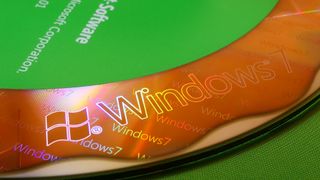Windows 7 driver updates have been killed off by Microsoft
No more driver updates to be piped via Windows Update

Windows 7 users have been hit by some more bad news, with the revelation that Microsoft is no longer supporting driver updates at all through Windows Update for the aging OS.
This follows another recent move made by Nvidia, where Team Green discontinued core driver support for its graphics cards with Windows 7, and also Windows 8/8.1 for that matter (although any vital security fixes will still be delivered through until 2024).
As Bleeping Computer reports, support has now been ditched for Windows 7 (SP1) drivers being delivered via Windows Update, following the expiry of the SHA-1 Trusted Root Certificate Authority in May 2021. As well as Windows 7, this applies to Windows Server 2008.
Naim Mohammad, Technical Program Manager at Microsoft, said: “On June 17, 2021, Microsoft will discontinue the publication of drivers to Windows Update for Windows 7 SP1, Windows Server 2008, and Windows Server 2008 R2.”
However, note that business users paying for the ESU or Extended Security Update program (which will continue until July 2022) will still be able to deploy Windows 7 drivers via WSUS (Windows Server Update Services).
Code integrity
Microsoft explains that the piping of drivers to Windows 7 has been ceased because with the aforementioned expiration of SHA-1 certificates, partners who are delivering their drivers through the Microsoft Trusted Root Program could deploy SHA-2 signed drivers instead – but these are incompatible.
If they made their way through to Windows 7 devices from Windows Update, that could cause serious issues including ‘degraded functionality’ or indeed totally bricking the machine so it doesn’t boot. As Microsoft notes: “Unpatched systems will have code integrity failures when presented with a SHA-2 signed driver.”
Get daily insight, inspiration and deals in your inbox
Get the hottest deals available in your inbox plus news, reviews, opinion, analysis and more from the TechRadar team.
So to avoid any potential nasty side effects like this, Microsoft is no longer allowing SHA-2 signed drivers to be delivered via Windows Update, so driver updates are effectively now shut down.
Official support for Windows 7 ended at the start of 2020, a year and a half ago now, so consumers still using Windows 7 – or businesses not paying for extended security support – should, of course, be moving on to Windows 10 (soon to be Windows 11) by now (or switching elsewhere, perhaps checking out Linux distros). Yet going by some reports, a surprising amount of PC owners are sticking with Windows 7, and that ground will only get rockier going forward.
Darren is a freelancer writing news and features for TechRadar (and occasionally T3) across a broad range of computing topics including CPUs, GPUs, various other hardware, VPNs, antivirus and more. He has written about tech for the best part of three decades, and writes books in his spare time (his debut novel - 'I Know What You Did Last Supper' - was published by Hachette UK in 2013).
